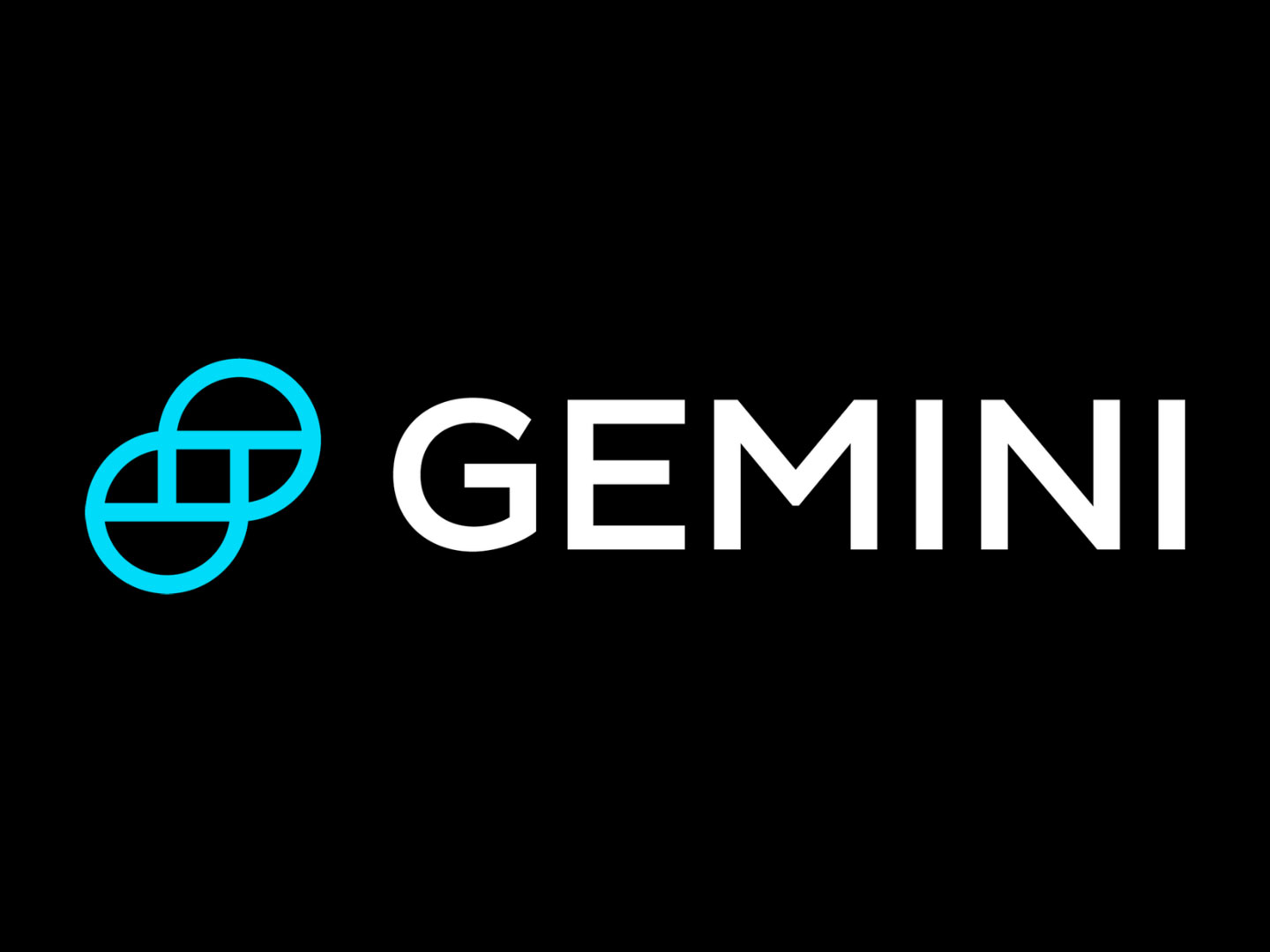Gemini, a prominent startup in the cryptocurrency industry, has rapidly emerged as a key player in the global digital asset exchange space. Founded in 2014 by the Winklevoss twins, Cameron and Tyler, Gemini has established itself as a trusted and regulated platform for buying, selling, and storing various cryptocurrencies.
With a vision to build a bridge between the traditional financial system and the new frontier of digital assets, Gemini has worked relentlessly to create a secure and user-friendly platform that caters to both individual and institutional investors. The founders, renowned for their involvement in early Bitcoin ventures, bring a wealth of knowledge and experience to the table, solidifying Gemini’s credibility and industry expertise.
One of the standout features of Gemini is its commitment to regulatory compliance. Recognizing the importance of establishing a robust framework for the digital asset industry, Gemini has prioritized compliance with applicable laws and regulations, making it one of the few cryptocurrency exchanges to obtain licenses from multiple regulatory authorities. This approach not only enhances trust and transparency but also ensures the protection of customer assets.
Gemini offers a wide range of digital assets for trading, including Bitcoin, Ethereum, Litecoin, and various other popular cryptocurrencies. The platform provides a seamless and intuitive interface, empowering users to navigate the complex world of cryptocurrencies with ease. In addition to its spot trading services, Gemini has also introduced innovative products like Gemini Earn (now defunct) and Gemini Custody, catering to the growing demands of investors looking for yield generation and secure asset storage solutions.
Security is paramount in the world of cryptocurrencies, and Gemini has prioritized implementing cutting-edge security measures. The platform employs a combination of cold storage and multi-signature technology to safeguard customer funds, mitigating the risks associated with hacking and unauthorized access. This stringent security framework, coupled with its regulatory compliance, has bolstered Gemini’s reputation as a reliable and secure platform.
Furthermore, Gemini has actively engaged in partnerships and collaborations to expand its offerings and reach. The company has collaborated with various financial institutions, payment processors, and other entities to facilitate seamless integration and enable wider adoption of cryptocurrencies in traditional financial systems.
As the cryptocurrency market continues to evolve, Gemini remains at the forefront of innovation. The company consistently explores new avenues and product enhancements to meet the evolving needs of its diverse user base. With a strong focus on compliance, security, and user experience, Gemini has solidified its position as a leading startup in the cryptocurrency space, paving the way for the broader adoption and acceptance of digital assets in the mainstream financial ecosystem.
Founding History of Gemini
Gemini was founded in 2014 by the Winklevoss twins, Cameron and Tyler Winklevoss. The twins are well-known figures in the cryptocurrency and technology spheres, having gained fame for their early involvement in Bitcoin and their subsequent legal battle with Mark Zuckerberg over the creation of Facebook.

Cameron and Tyler Winklevoss, Harvard graduates and Olympic rowers, recognized the potential of cryptocurrencies early on. In 2013, they made headlines when they announced that they had invested a significant portion of their settlement with Facebook into Bitcoin, becoming one of the first high-profile advocates for the digital currency.
Drawing from their experiences and insights, the Winklevoss twins set out to create a cryptocurrency exchange that would address some of the industry’s challenges and provide a trusted and regulated platform for individuals and institutions to trade digital assets. Thus, Gemini was born.
The name “Gemini” reflects the twins’ astrological sign, symbolizing their partnership and collaboration. The symbolism also extends to the exchange’s commitment to maintaining a strong focus on security and compliance, an essential aspect of building trust in the cryptocurrency industry.
From the outset, Gemini aimed to create a platform that adhered to regulatory standards. This commitment to compliance played a crucial role in differentiating Gemini from other cryptocurrency exchanges and building trust among investors. In 2015, Gemini became one of the first cryptocurrency exchanges to obtain a BitLicense from the New York State Department of Financial Services, further establishing its credibility and regulatory compliance.
Gemini’s founding team recognized the importance of providing a secure and user-friendly trading experience. The platform incorporated advanced security measures, including cold storage for the majority of customer funds and multi-signature technology to prevent unauthorized access. This robust security framework has helped instill confidence in users and positioned Gemini as a trusted custodian for digital assets.
Over the years, Gemini has continued to expand its offerings and services. The exchange has introduced features like Gemini Earn, which enables users to earn interest on their cryptocurrency holdings, and Gemini Custody, a solution for securely storing digital assets. These additions have catered to the evolving needs of users and positioned Gemini as a comprehensive platform for trading, investing, and custodial services.
In conclusion, the founding history of Gemini showcases the entrepreneurial spirit and foresight of the Winklevoss twins. Their early involvement in Bitcoin, coupled with a commitment to regulatory compliance and robust security measures, has positioned Gemini as a trusted and respected player in the cryptocurrency exchange space. Through continuous innovation and partnerships, Gemini remains at the forefront of the industry, driving the adoption of cryptocurrencies and bridging the gap between traditional finance and the digital asset ecosystem.
Products and Features of Gemini
Gemini offers a range of products and features designed to cater to the needs of individual and institutional investors. Let’s delve into the details of some of Gemini’s key offerings:
Spot Trading: Gemini provides a user-friendly platform for buying and selling various cryptocurrencies. Users can trade popular digital assets such as Bitcoin (BTC), Ethereum (ETH), Litecoin (LTC), Bitcoin Cash (BCH), and more. The spot trading feature allows users to execute instant trades at the prevailing market prices.
Gemini ActiveTrader™: Designed for advanced traders, Gemini ActiveTrader™ offers a comprehensive suite of tools and features to enhance trading capabilities. Users gain access to features like advanced charting tools, order book depth visualization, price alerts, and various order types (market, limit, stop-limit, etc.). ActiveTrader™ empowers traders to make informed decisions and execute trades with precision.
Gemini Earn: Gemini Earn enables users to earn interest on their cryptocurrency holdings. By opting to lend their digital assets to Gemini’s institutional borrowers, users can earn passive income. The platform offers flexible terms and interest rates based on the chosen cryptocurrency and lending duration. Gemini Earn provides an opportunity for users to generate returns on their idle crypto assets. Gemini Earn was shut down in January 2023, following Genesis suspending withdrawals in November 2022
Gemini Custody: Gemini Custody provides a secure and regulated solution for storing digital assets. It caters to institutional clients, including hedge funds, asset managers, and exchanges, as well as high-net-worth individuals. Gemini Custody employs rigorous security measures, including cold storage and multi-signature technology, to protect customer assets. The service offers enhanced peace of mind for those seeking reliable and institutional-grade custodial solutions.
API Integration: Gemini offers a comprehensive API (Application Programming Interface) that allows developers and businesses to integrate Gemini’s trading functionality into their own applications or platforms. This enables seamless trading experiences and facilitates the integration of cryptocurrency services into various businesses, including wallets, financial applications, and other platforms.
Gemini Mobile App: Gemini provides a mobile application for both iOS and Android devices. The app allows users to access their accounts, trade cryptocurrencies, track portfolio performance, set price alerts, and manage their Gemini Earn holdings on the go (now defunct). The intuitive interface and robust security features make the mobile app a convenient and secure way to engage with the Gemini platform.
Institutional Services: Recognizing the growing demand from institutional investors, Gemini offers a suite of institutional services. These include secure custody, over-the-counter (OTC) trading, block trading, and clearing and settlement solutions. Gemini’s institutional offerings cater to the specific needs and requirements of professional investors, ensuring compliance with regulatory standards and providing a reliable infrastructure for their cryptocurrency operations.
In summary, Gemini provides a comprehensive range of products and features that cater to the diverse needs of cryptocurrency investors. From spot trading and advanced trading tools to earning interest on crypto holdings and secure custodial services, Gemini’s offerings combine ease of use, security, and regulatory compliance to create a trusted platform for individuals and institutions alike. The exchange’s commitment to innovation and partnerships ensures that users have access to cutting-edge features and services within the evolving cryptocurrency ecosystem.
Business Model of Gemini – How does Gemini make money?
Gemini generates revenue through various channels, including transaction fees, transfer fees, interchange fees, interest earned on cash held in its Earn accounts (now defunct), and custody fees. In the following section, we will delve into each of these revenue streams to gain a deeper understanding of Gemini’s sources of income.
Transaction Fees
The primary source of revenue for Gemini stems from the transaction fees it collects for trades executed on its platform. These fees are applicable to both the mobile app and website, and they vary based on the order amount. For example, orders below $10 incur a fee of $0.99, while orders above $200 are charged 1.49% of the order volume.
In addition to its mobile and web platforms, Gemini has developed specialized tools to cater to advanced traders. Known as ActiveTrader, this high-performance crypto trading platform offers a professional-level experience. Furthermore, users have the option to integrate with Gemini’s API, allowing for programmatically executed trades.
Gemini implements a maker-taker fee model to determine trading fees for orders placed via the API and the ActiveTrader platform. Under this model, the fee structure depends on whether the order adds liquidity to the market (maker) or removes liquidity by matching with an existing order (taker). Generally, takers pay higher fees compared to makers.
Gemini employs a variable fee structure, meaning that fees decrease as users execute more trades on the platform within a 30-day period. This encourages higher trading volumes and rewards active traders with reduced fees over time.
Transfer Fees
Gemini applies fees for both deposits and withdrawals made by users to their Gemini accounts. When it comes to deposits, there is a fee exclusively for debit card transfers, which amounts to 3.49 percent of the transaction. However, ACH and wire transfers incur no deposit fees.
On the other hand, withdrawal fees are imposed on customers who wish to withdraw more than 10 tokens per month. The specific fee is determined by factors such as the customer type (individual or institutional) and the type of token being withdrawn.
For instance, if an individual customer plans to withdraw more than 10 Bitcoin, Gemini will charge a withdrawal fee of 0.001 BTC for that particular transaction. The withdrawal fees vary depending on the cryptocurrency and the customer classification, ensuring a transparent and fair fee structure.
Interchange Fees
In 2021, Gemini introduced its own credit card in collaboration with MasterCard, enabling users to utilize their cash balances for real-world purchases. The Gemini credit card offers various advantages to cardholders, including cashback rewards of up to 3 percent, which can be redeemed in over 40 currencies. It also boasts benefits such as no annual fees, 24/7 customer support, and more.
To expedite the launch of the credit card, Gemini acquired FinTech startup Blockrize, which was already developing a similar product. Similar to traditional credit cards, Gemini earns revenue through interchange fees. These fees, typically around 1 percent, are paid by the merchants.
Gemini then shares this revenue with MasterCard, who issues the physical cards and provides the payment technology infrastructure. Numerous cryptocurrency exchanges, such as Binance and FTX, have adopted debit and credit cards as a means of generating additional revenue.
Given that customers are already comfortable storing their funds on the exchange, offering them additional incentives like cashback rewards encourages them to remain loyal customers and further engage with the Gemini platform.
Interest On Cash
Custody Fees
Gemini offers a custody solution tailored to its most sophisticated clients. The company holds the distinction of being a qualified custodian under New York Banking Law and is authorized by the State of New York to provide custody services for digital assets.
The management and brokerage of Gemini Custody are handled by reputable firms, Marsh and Aon. Additionally, Gemini provides an extensive cold storage insurance coverage of $200 million, which it asserts is the highest limit of insurance purchased by any cryptocurrency custodian globally.
Clients have the ability to store more than 50 different tokens, including popular cryptocurrencies like Bitcoin, Ethereum, Loopring, Uniswap, and many others. In return for this service, Gemini imposes a custody fee of 0.4 percent. The fee is annualized and deducted from the respective digital asset held within the custody account.
Gemini Growth over the years – Funding, Revenue & Valuation
The company has grown significantly over the years, and it is now one of the largest cryptocurrency exchanges in the world.
Funding
Gemini has raised a total of $430 million in funding from investors such as Digital Currency Group, Galaxy Digital, and Union Square Ventures. The company’s most recent funding round was a $400 million Series C round led by Digital Currency Group in 2021.
Revenue
Gemini’s revenue has grown significantly over the years. In 2016, the company generated $20 million in revenue. In 2021, the company generated estimated $100 million in revenue.
Valuation
Gemini’s valuation has also grown significantly over the years. In 2016, the company was valued at $400 million. In 2021, the company was valued at $7.1 billion.
Gemini’s Growth Drivers
Gemini’s growth has been driven by a number of factors, including:
- The growing popularity of cryptocurrency
- The increasing regulation of cryptocurrency exchanges
- Gemini’s focus on security and compliance
- Gemini’s user-friendly platform
Gemini’s Future
Gemini is well-positioned for continued growth in the future. The company is committed to providing a safe and secure platform for cryptocurrency trading, and it is also expanding its product offerings. Gemini is likely to continue to grow as the cryptocurrency market matures.
Also Read: Dapper Labs – History, Founders, Products and Business Model
To read more content like this, subscribe to our newsletter
Go to the full page to view and submit the form.


